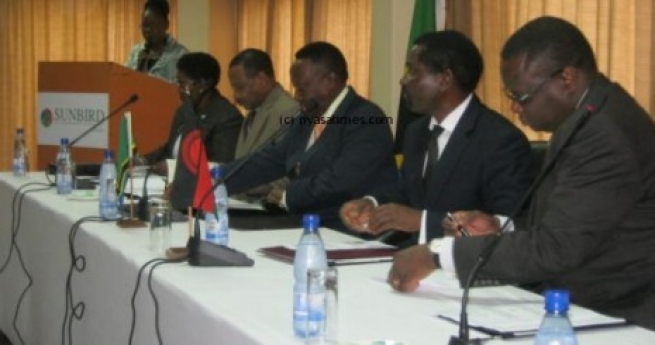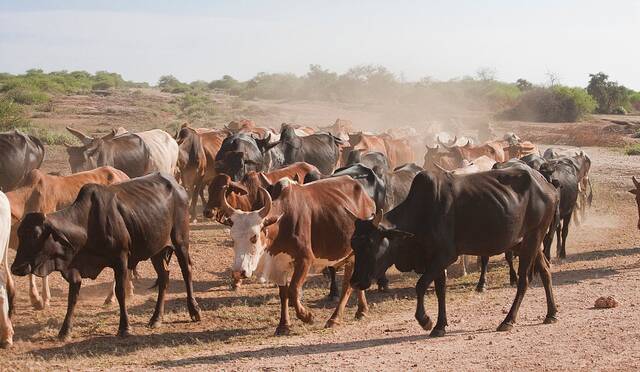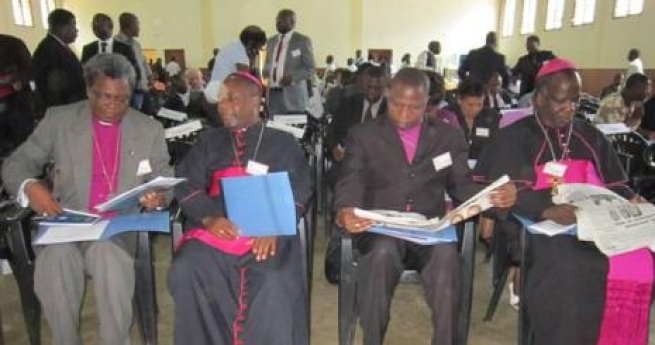It was perhaps only inevitable that Malawi and Tanzania would hit a dead end in the bid to resolve their long running dispute over Lake Malawi through negotiations.
And so it has happened that the two countries have failed to reach a compromise, forcing them to explore other channels such as taking up the matter with the International Court of Justice (ICJ) in the Netherlands.
The two countries returned to the negotiating table in Tanzania last week where the dialogue broke down after both parties stuck to their guns, reports Tanzanian publication The Citizen.
While Malawi says it owns the whole lake, Tanzania claims that it is entitled to half of the water body.
The newspaper reported on Saturday that Tanzania’s Foreign Affairs Minister Bernard Membe told reporters after a closed-door meeting with European Union (EU) envoys in Dar es Salaam on Friday that the two countries had failed to agree on a common ground.
“I will hold a news conference with my Malawian counterpart on Sunday during which I will reiterate our decision to take the matter to the ICJ. There is now a need for this issue to be handled at the highest levels of international arbitration,” Membe told The Citizen.
International arbitration
Membe said a special team would travel to the African Union (AU) headquarters in Addis Ababa and Germany to compile facts that Tanzania would use to support its legal case.
The discussions began on Thursday and were scheduled to end today. Minister of Foreign Affairs and International Cooperation Ephraim Chiume led the Malawian delegation to the talks, according to Minister of Information Moses Kunkuyu who held a media conference in Lilongwe on Friday.
Kunkuyu on Saturday said he had also heard about the collapse of the talks unofficially, but he was waiting for details.
Chancellor College law lecturer Edge Kanyongolo told Nation on Sunday on Saturday that it is too early to determine the strength of Malawi’s case without looking at the evidence from both sides.
“I will say what every lawyer is told: preparation is the key in winning any case. Let them gather all facts, take time to study the law and take nothing for granted,” said Kanyongolo.
Political commentator, Dr Mustafa Hussein, who was reacting to the outcome of the negotiations, said Malawi has a strong case at the ICJ based on the Anglo-German treaty which clearly gives her the lake.
Hussein also hailed the civility Malawi has displayed in handling the dispute.
“Malawi was very committed to dialogue without resorting to force or hot rhetoric that demonstrated civility,” he said.
People’s misgivings
Meanwhile, a nationwide survey Nation on Sunday conducted has revealed Malawian’s misgivings over the way government has handled the issue.
Sixty-four percent of the respondents felt that government has not handled the issue well. One of the dominant arguments by those who took this line was that government was wasting time on negotiations when it was clear that the dialogue was doomed to fail.
Some people cited Tanzania’s decision to draw a new map which captured half of the lake as a sign that Dodoma was not sincere in the talks.
On the other hand, those who patted government on the back said dialogue was the only viable way out of the impasse.
The dispute between the two countries first emerged during the 1960s when Dr Hastings Kamuzu Banda was at the helm in Malawi while Julius Nyerere was president of Tanzania.
Under contest is the Heligoland Treaty of 1890 between colonial powers Britain and Germany which gave Malawi ownership of the whole lake. Tanzania contends that the treaty is flawed, saying under international law the east African nation has the right to half of the lake.
Malawi last year awarded exploration licences to UK-based Surestream Petroleum to search for oil in the lake, which is known as Lake Nyasa in Tanzania.
But in July, Tanzanian authorities asked Surestream Petroleum to postpone any planned drilling on the lake. The company has not yet started drilling.
Tanzania, east Africa’s second-biggest economy, became a player in energy this year with several onshore and offshore gas finds, attracting multinational energy concerns to the area.
Lake Malawi contains more than 2 000 different fish species, attracting scuba divers, and environmentalists are concerned that oil exploration will disturb its freshwater ecosystem. Exploration on the lake will start in earnest next year, authorities said.




